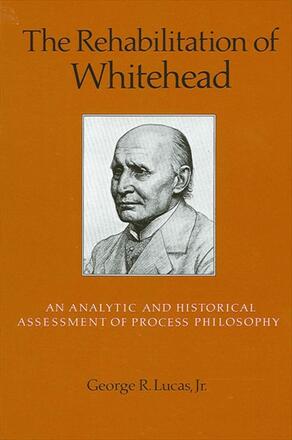
The Rehabilitation of Whitehead
An Analytic and Historical Assessment of Process Philosophy
Alternative formats available from:
Description
Lucas treats Whitehead within the framework of major themes in current Anglo-American "analytic" philosophy, viewed against the backdrop of significant historical trends in European and American thought since the Enlightenment. This most misunderstood of twentieth-century philosophers is critically interpreted here.
Whitehead had developed 50 years ago some ideas only now emerging in analytic philosophy. Lucas examines the significance of Whitehead's thought for current epistemology of science, for the anti-foundationalism debate, and more generally, for modal logic, action, theory, philosophical psychology, and the philosophy of mind. He shows how some recent analytic philosophy is now developing ideas concerning language, personal identity, and other topics that are found in Whitehead.
Lucas concludes with recent problems in relativity theory and quantum mechanics, indicating how these bear on the philosophy of science and on the task of forging a comprehensive understanding of nature. He examines the debates concerning Einstein and Whitehead on relativity and analyzes the work of Bohm, Prigogine, and others who have found Whitehead's categories useful for their own success.
Whitehead is shown to be a historical figure of great importance, not an idiosyncratic thinker, isolated along with a few enthusiastic followers from the mainstream of contemporary philosophy. With Russell, Whitehead participated in the same philosophical world that gave rise to analytic philosophy.
George R. Lucas, Jr. , is Associate Professor of Philosophy at Clemson University in South Carolina.
Reviews
"Lucas' book competently brings Whitehead's philosophy into dialogue with "analytic" philosophy. This is a topic of great originality and considerable potential importance for the field of philosophy. The writing is forceful, concise, and clear. " — George L. Kline, Bryn Mawr College